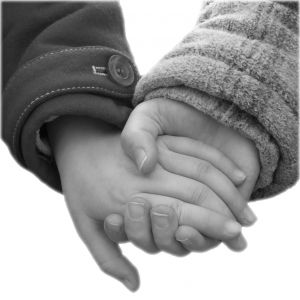 My friend Michelle just sent me a greeting card that says, “Things people say to cheer you up: 1. Look on the bright side. 2. Things could be worse. 3. Hey, it’s not so bad! Things that you can say back to them: 1. Shut up! 2. Shut up! 3. Shut up!”
My friend Michelle just sent me a greeting card that says, “Things people say to cheer you up: 1. Look on the bright side. 2. Things could be worse. 3. Hey, it’s not so bad! Things that you can say back to them: 1. Shut up! 2. Shut up! 3. Shut up!”
The last few months–as I’ve been trying my damndest to dig out of the Black Hole–I’ve become increasingly aware of the lost art of listening in our culture. The majority of us are terribly uncomfortable with pain. So as soon as someone says that they are less than perfect, we throw out a simple solution. If that doesn’t work, we throw out another. And another. Anything to cover the awkwardness that genuine suffering surfaces.
I experienced this during the years of my suicidal depression and I’m running up against it again lately. Even those who do ask you how you are give you about a week to feel better, and if you are still not singing affirmations about your many blessings, then they put you in the whine club, to be handled carefully and with plastic gloves so that they don’t have to get dirty with you.
I suppose it’s because of this that I tend to tell everyone that I’m doing fine, peachy, great. But I will break down at night. I even tried to convince Dr. Smith that I was on the road to recovery! Until she looked at the numbers of my mood evaluation and found primarily fours (meaning “all the time”) to “feel guilty,” “indecisive,” “have difficulty concentrating,” “thoughts of death.”
“You do a great job of putting on a good face,” she said. “But you don’t have to do that with me.” And then looked at me squarely, with that compassionate look of hers, and I burst into tears.
“I just feel like such a failure for not being able to cope better or move toward health,” I told her. “I know too much about how the brain works–that it’s plastic–and with the right thoughts and mindfulness practices you can thrust yourself into recovery or back into depression. The fact that I can’t get out of this hole means that I’m too lazy or too pathetic or too weak to jump start my prefrontal cortex.”
Again, she didn’t say anything.
She listened.
Which is so rare today.
I’m lucky to have friends with whom I can be real. Friends who send me cards saying the perfect thing: “You WILL feel good again. I PROMISE.” And I have genuinely caring neighbors who don’t expect a “fabulous!” from me when they ask how I am. They actually want to know.
A handful of friends and my neighbors listen, which I think is the single best thing you can do for anyone struggling with anything: a chronic illness, a stressful situation, a death, being laid off.
One of my favorite chapters in Rachel Naomi Remen’s bestselling “Kitchen Table Wisdom,” is about the importance of listening. One of the earliest pioneers in the mind/body health field, she writes:
I suspect that the most basic and powerful way to connect to another person is to listen. Just listen. Perhaps the most important thing we ever give each other is our attention. And especially if it’s given from the heart. When people are talking, there’s no need to do anything but receive them. Just take them in. Listen to what they’re saying. Care about it. Most times caring about it is even more important than understanding it.
I have even learned to respond to someone crying by just listening. In the old days I used to reach for the tissues, until I realized that passing a person a tissue may be just another way to shut them down, to take them out of their experience of sadness and grief. Now I just listen. When they have cried all they need to cry, they find me there with them.
This simple thing has not been that easy to learn. It certainly went against everything I had been taught since I was very young. I thought people listened only because they were too timid to speak or did not know the answer. A loving silence often has far more power to heal and to connect than the most well-intentioned words.
* Click here to subscribe to Beyond Blue and click here to follow Therese on Twitter and click here to join Group Beyond Blue, a depression support group. Now stop clicking.
